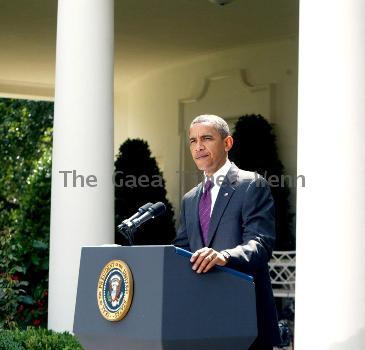Defense secretary vows to shutter Virginia command, slash contractors to save money
By Anne Gearan, APMonday, August 9, 2010
Pentagon belt-tightening will cut jobs
WASHINGTON — Defense Secretary Robert Gates said Monday that tough economic times require that he shutter a major command that employs some 5,000 people around Norfolk, Va., and begin to eliminate other jobs throughout the military.
The announcement was the first major step by Gates to find $100 billion in savings in the next five years. Gates says that money is needed elsewhere within the Defense Department to repair a force ravaged by years of war and to prepare troops for the next fight.
Gates and other Pentagon officials would not put a dollar figure on cuts outlined Monday, but the savings is expected to be less than what the individual military services are trying to trim on their own.
Big cuts are essential considering the straitened economy and the likelihood that Congress no longer will give the Pentagon the sizable budget increases it has enjoyed since the attacks of Sept. 11, 2001, Gates said.
The political backlash was swift and fierce from lawmakers fearful that jobs would be lost in their districts.
Virginia Gov. Bob McDonnell, a Republican, said in a hastily called news conference that eliminating Norfolk’s Joint Forces Command would deal a devastating blow to the state at a time of runaway federal spending on lower priorities.
Likewise, Republican Rep. J. Randy Forbes called the decision “further evidence of this administration allowing its budget for social change” and the “piecemeal auctioning off of the greatest military the world has ever known.”
Democrats, including Sens. Mark Warner and Jim Webb of Virginia, also condemned the move. Warner said he could see “no rational basis” for eliminating a command created to improve the services’ ability to work together and find efficiencies.
“In the business world, you sometimes have to spend money in order to save money,” said Warner.
In a Pentagon press conference, Gates was optimistic that Congress would eventually swing behind his plan despite lawmakers’ control of the budget. He said in the case of Virginia, the state could wind up with additional jobs if the savings found by closing Joint Forces Command enables a boost in shipbuilding.
Eliminating the command would take the backing of President Barack Obama. Obama applauded the overall belt-tightening in a statement Monday but did not mention JFCOM or two smaller offices set for closure.
“The funds saved will help us sustain the current force structure and make needed investments in modernization in a fiscally responsible way,” Obama said. “Change is never easy.”
Gates described his initiative as just the beginning in his hunt for inefficiencies across the Defense Department, which commands a nearly $700 billion annual budget including war spending.
“The department must start setting priorities, making real trade-offs and separating appetites from real requirements,” Gates said.
Gates vowed to review every corner of the budget, including the military’s rising health care costs.
“There are no sacred cows,” Gates said.
Besides shutting down Joint Forces Command, Gates wants to:
— Trim by 10 percent the budget for contractors who support the Defense Department;
— Freeze the number of employees working for his office, defense agencies and combatant commands for the next three years; and
— Cut at least 50 general and flag officer positions and 150 senior civilian executive positions over the next two years.
Savings from closing Joint Forces Command will be offset by the cost of shifting some jobs and roles elsewhere, Gates said.
The command, which holds more than 1 million square feet of real estate in Suffolk and Norfolk, Va., lists its mission as training troops from all services to work together for specific missions. It tries to make sure equipment used by different services works together and looks for gaps in capabilities within military services that could be filled by a specially trained joint force.
The command is headed by a four-star military officer, the highest grade currently in use. Marine Gen. James Mattis was its commander until named last month to replace Army Gen. David Petraeus as head of U.S. Central Command. His replacement will be Gen. Ray Odierno, now the war commander in Iraq. Odierno’s job will be to eliminate his own office, officials said.
The plan Gates outlined was similar to one suggested last month by the Defense Business Board, a panel of company executives who advise the Pentagon. The panel identified Joint Forces Command as contributing to much of the contractor bloat because it had more contractors than government employees on its payroll.
__
Associated Press writer Bob Lewis in Richmond, Va., contributed to this report.
Online:
Defense Department: www.defense.gov/
U.S. Joint Forces Command: www.jfcom.mil/index.htm
Tags: Barack Obama, Joint forces command, Norfolk, North America, United States, Virginia, Washington

